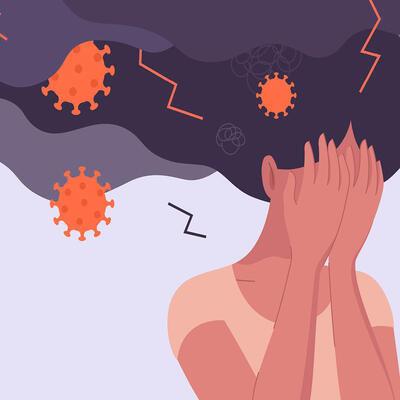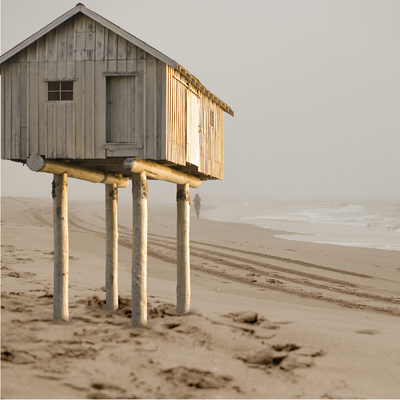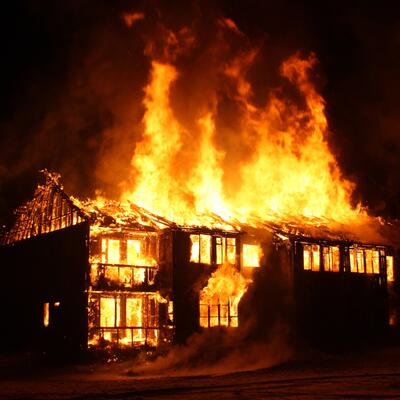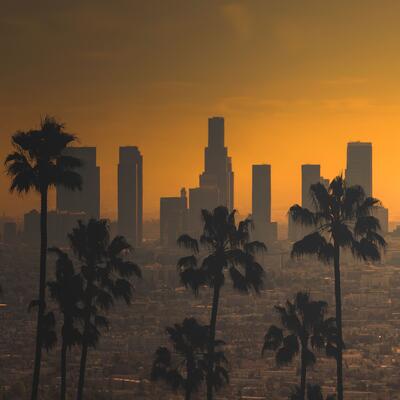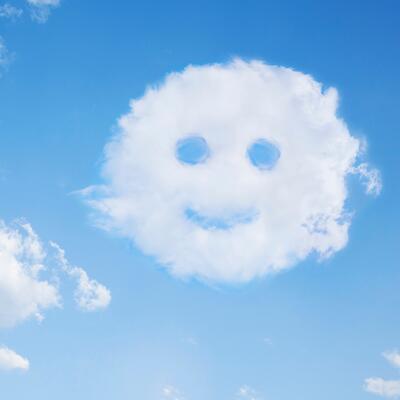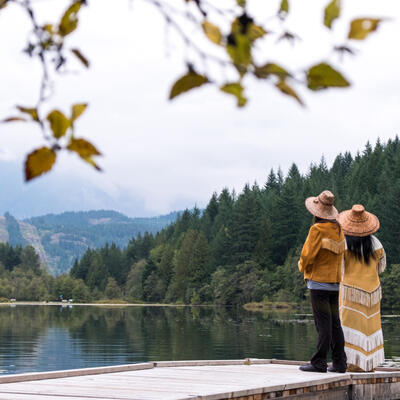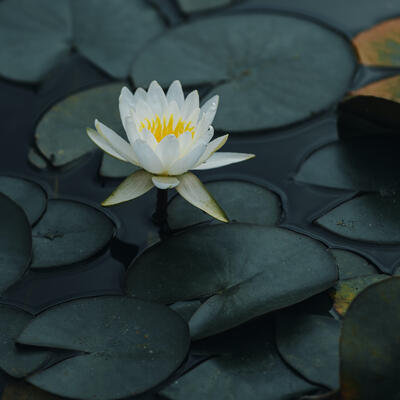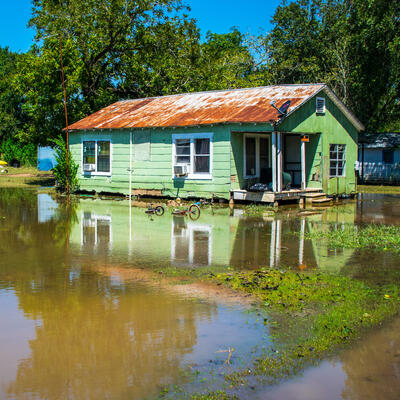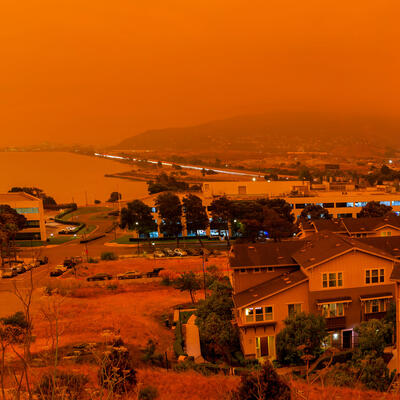
Living with Climate Disruption
Guests
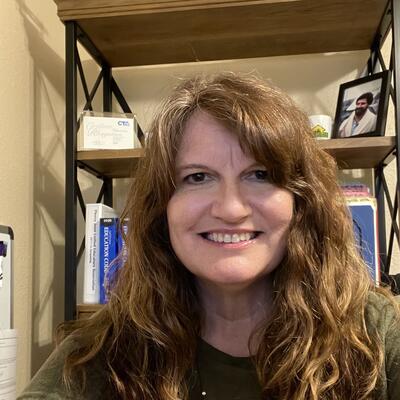
Tamara Conry
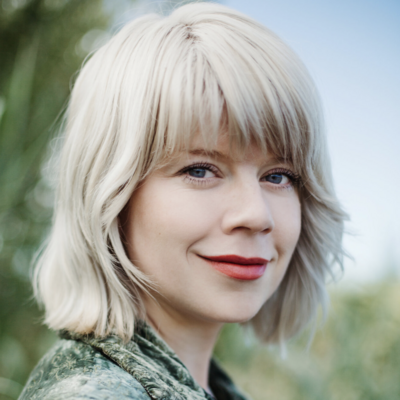
Britt Wray
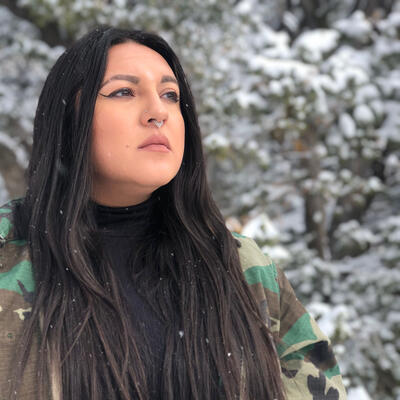
Julia Fay Bernal
Summary
We’ve been living with the impacts of a changing climate for years, but those impacts don’t all hit the same way.
A wildfire amplified by drought may rip through a town in a matter of hours, or rising seas may take years to destroy a neighborhood. Health impacts may show up in a matter of months, or take the form of devastating cancer rates that rise over a decade. Regardless of speed or intensity, the climate emergency will impact us all.
Tamara Conry knows firsthand what rapid climate changes can bring. She and her husband survived the 2018 Camp Fire, the deadliest ever in California, which destroyed their town of Paradise. Remarkably, their home survived — but Conry found she couldn’t live there again.
“I definitely had PTSD, and so did [my husband],” she says. The realization of that underlying trauma hit her when they were driving through the wildfire wreckage of Malibu, Calif., a few months after the Camp Fire. “And it was just the most horrible drive, and I was crying the whole way,” she says.
After the fire, she says, there was a lot of loss. “The town I lived in for almost 30 years, the place my daughters grew up, all of that.” She now pays even closer attention to other impacts of climate disruption, like the unusual winter storm that hit Texas earlier this year. “Once you've lived through it, it’s just foremost in your mind,” Conry says.
For others, living with the impacts of climate disruptions is further complicated by systems of oppression. Julia Fay Bernal is an enrolled member of the Sandia Pueblo in New Mexico and director of the Pueblo Action Alliance.
“Climate change isn't just about protecting the natural world; it’s also about protecting our culture and who we are because we've resisted against so many colonial forces for so long,” she says.
Her group advocates for the restoration of indigenous water management practices, which involves what she describes as “the decolonization of water policy.” She draws a lot of inspiration from the long history of her people’s connection to the Rio Grande and their relationship with water as a sacred entity.
“The river, to me, is one of my mothers. And so, I have sort of this innate responsibility to protect her essence to protect all that she provides for. Because in our culture, being desert-cultured people, water is very significant in terms of abundance and prosperity and longevity,” Bernal says.
Experience with climate disruption can be traumatic, and affect our mental and physical health in real ways. Britt Wray is a postdoctoral researcher at Stanford University focused on the intersection of mental health and the climate crisis, and author of the forthcoming book Generation Dread.
“We have robust data in the scientific literature that shows us that after extreme weather events, hurricanes, wildfires, as well as the slow creeping events like droughts or sea ice loss, humans are experiencing serious distress that can manifest as PTSD, anxiety, depression, sometimes suicide,” Wray says. There are also vicarious traumas related to the indirect effects of climate change, “the sense of just knowing what's happening, understanding and appreciating the direness of the predicament we’re in.”
Wray says people shouldn't be ashamed of these feelings.
“It's a natural reaction. It's the cost of attachment to the world and shows that you love things that are being threatened.”
Wray says there are ways to cope with eco-anxiety and ecological grief: by finding others who share your concerns, aligning your values with your action, or through self-care like meditation and mindfulness.
Related Links:
Pueblo Action Alliance
Eco-anxiety and Gen Dread
This story is part of Covering Climate Now, a global journalism collaboration strengthening coverage of the climate story.
Full Transcript
Greg Dalton: This is Climate One. I’m Greg Dalton. We’ve been living with the impacts of a changing climate for years, but those impacts don’t all hit the same way. For some, the ramifications are immediate:
Tamara Conry: We go onto our back porch, and my husband picked up hot embers. And we looked out and saw flames that appeared to be in our lower property.
Greg Dalton: For others, it can mean combatting systems of oppression that have made the climate crisis worse.
Julia Fay Bernal: Climate change isn't just about protecting the natural world it’s also about protecting our culture and who we are because we've resisted against so many colonial forces for so long.
Greg Dalton: Those experiences can be traumatic, and affect our mental and physical health in real ways.
Britt Wray: Humans are experiencing serious distress that can manifest as PTSD, anxiety, depression…
Greg Dalton: Living with Climate Disruption. Up next on Climate One.
---
Greg Dalton: What does it mean to live with a disrupted climate? Climate One conversations feature all aspects of the climate emergency: the individual and the systemic, the exciting and the scary, people who are in power and people who don’t have access to power. I’m Greg Dalton.
The impacts of climate change can come fast or slow. A wildfire amplified by drought may rip through a town in a matter of hours, or rising seas may take years to destroy a neighborhood. Health impacts may show up in months, or as devastating cancer rates that rise over a decade. Regardless of speed or intensity, the climate emergency will impact us all.
This week’s show is a part of Covering Climate Now, a global journalism collaboration strengthening coverage of the climate story. Today my guests are Tamara Conry, a former teacher and survivor of the deadly 2018 wildfire in Paradise, California; Julia Fay Bernal, director of the Pueblo Action Alliance, and Britt Wray, a researcher focused on the intersection of mental health and the climate crisis.
Tamara Conry: I first moved to Paradise in 1990 as a newlywed to raise a family. Our cousin said it's where the newlywed and the nearly dead exist. That’s how we got our welcome into Paradise.
Greg Dalton: Tamara Conry was living in Paradise when it was devastated by a historic wildfire in 2018. She and her first husband raised their two girls there. In 2012 she and her current husband bought a new house in the town, located in foothills of the Sierra Nevada mountains in Northern California.
Tamara Conry: We found this house that we just loved it was on the canyon beautiful view whether, you know, rain, snow, shine it was just always beautiful just looking straight out of the canyon behind us and a nice little neighborhood. And we had difficulty getting insurance because back in 2008 there’d been a fire in lower Paradise further down, and it was pretty devastating. And even though we weren’t on the same canyon that that fire was, our insurance company said based on where you live, we can't insure you. And so, we had to really search for insurance companies and ended up paying a little bit more, but we finally found one.
Greg Dalton: And take me to that night in 2018 it’s called the Camp Fire that destroyed Paradise. What were you doing as news of the fire unfolded?
Tamara Conry: Well, my husband and I woke up that morning and it was probably around between 7:00, 7:30. And normally, I would be heading to work by 8:00 but that morning I had an appointment. And so, we were just getting ready but we opened our bedroom curtains open and said wow that's really a red sun this morning. Red sunrise. And my first thought was a good thing. And then my husband looks then he goes, that looks like there's a fire out there. So, I immediately get on my phone and I found that there was a fire in Pulga which was the start of this fire. And it was like okay that's far enough away. We’re on the west side of the canyon of Paradise that canyon and this was over on the east side over some other hills before anything in Pulga would get to Paradise. So, we weren’t worried until about 8:30 when the gal I had my appointment with and she does my nails. At 8:30 she called me and said, Tamara, something is going on out there. There are sirens, smoke. And I said, really and I told her I heard about this fire. Then her home phone rang. We’re on cell phones and her home phone rang and she comes back to me and says, I gotta go we’re being evacuated.
Greg Dalton: So, you think you have distance between you and the fire and you have time.
Tamara Conry: Yes.
Greg Dalton: And when did you start to get that lump in your stomach and say we got to move or get out of there.
Tamara Conry: Well, my husband actually at first said, why don’t you go ahead to work and I'll pack up some things. And I'm looking at him, no, we’re gonna both pack up just both cars and then figure out, you know, what we’re gonna do. Because, you know, we got evacuated a year before and two days later we were back. And so, we didn't still think it would be that big of a deal, but we didn't actually get a call to evacuate. So, that was 8:30 and around 9:30, my daughter who lives in San Francisco, but grew up in Paradise calls me and says you're not at home are you? And I said, actually, I am. She goes, mom, why are you at home? She's talking to one of her friends who works at a retirement home and they're engulfed in a fire.
Greg Dalton: So, you hop in your car you pack up and get in both of your cars. Where did you go and what did you encounter trying to evacuate from your home in Paradise?
Tamara Conry: Well, we actually went out on to our porch first and my husband picked up hot embers that were on our porch. And we looked out and saw flames that appeared to be in our lower property. And that's when I took a short video, I have like one picture of that and we went into the house and looked around and just held each other for just a couple seconds and said goodbye to the house. And then we got out of there. And as we’re leaving, neighbors were going by saying oh good you're leaving. And I said, yeah, we’re leaving right now. We called out to other neighbors. You gotta leave now the fire is in our back property. And the first couple was in the house next door. The fire we saw was in between our houses, but one of our properties, or both we didn't know. And so, when we went to drive out, by the time we got to the Skyway we’re sitting there a long, long time not going anywhere. And I was in the front car. And when I pulled out they had just opened up all five lanes to leaving. And so, we were driving through looking at the trees and the houses on fire next to us. And at one point there was a car pulled over not quite enough so I had to keep edging to my right to get around it. And I was just freaked out that somebody might be in that car. And so again, I roll down my window to look and again that was even the worst mistake because now there's embers, but nobody was in the car so I figured they had to desert it and hopefully, gotten somebody else's. And by the way it was black it was dark like night and this is at 10 in the morning. And it was just black as night as we’re driving through that fire. And putting along and all of a sudden it opened up and you felt like the daylight like it just looked like the sky, everything just opened up and there was the sense of relief and dread because our lanes our two lanes that are normally the up are flowing quickly. And I look over and they’re almost at a standstill in the other two lanes, and people were coming over to get in and we were letting them in because now my fear is what we just drove through how are they all gonna survive that.
Greg Dalton: So, you run for your life and you get out and drive through the darkness and get through to the sky where you can see and breathe again. What do you think happened to your house and what happened when you went back to look at your house?
Tamara Conry: Well, we watch the news all night and seeing the town is devastated and because we saw the fire what seemed like right on our property. We just assume the house was gone. And for two days we thought it was. And then a friend’s brother is a policeman and he was up in Paradise and went to look at our house and she had him take a video outside where he took a video of the actual treat numbers on the house. So, we knew it was okay. And we said, what is the back look like, okay we know our house is there and yet that's when the guilt really set in because I was reading on Facebook and calling and talking to friends and hearing about all these houses lost. Everybody saying okay I saw a picture because nobody's allowed up there. We ended up not being allowed up there for six weeks. The smoke damage was incredible. And when we went in, we look like we’re standing at a sliding glass door that goes out back and you could see soot in windowsills. Things, it's just smelled awful when we were in the house. And a few days before Christmas we get this forwarded mail from Paradise from our insurance company who knows where we’re living, telling us in January when our policy was up, we were nonrenewed.
Greg Dalton: What was it like to read that letter?
Tamara Conry: Oh, I, I lost it.
Greg Dalton: So, at this were you planning to stay and rebuild your life in Paradise or were you planning to move?
Tamara Conry: That’s what we thought. That's what we thought in December and then over Christmas we took a drive to Southern California to see our kids. And whether we call it a mistake at the time I thought it was a mistake but maybe it was good. We drove through Malibu on our way back up and I was crying the whole time. Every little thing would make me cry. My daughter said I just seem different when we were together. And so, oh yeah -
Greg Dalton: Posttraumatic stress.
Tamara Conry: I definitely had PTSD so did Tom. And I said, I know I wanted us to go this way, but this is just devastating. We didn't pay attention to this Malibu fire that happened literally it started I think the same day. Like I said I couldn't tell you any details about theirs because we were living ours. And it was just the most horrible drive and I was crying the whole way. My husband is like look out this way instead of that way. And it was just so hard to not look but it was just devastating.
Greg Dalton: Tamara Conry and her husband decided not to move back to Paradise. They were able to sell both their primary home and their rental home in nearby Magalia. I asked her how much she was thinking about climate change during all this. A couple months after the fire, she attended a climate change rally in Paradise.
Tamara Conry: And it snowed and it was peaceful and beautiful. And again, every time we drove in and out, I told you we had to go up like every weekend and the tears would just flow. And so, we knew we made the right decision and we knew by the time we went to that rally that we were leaving. And it was just so they held it on a property of somebody who lost their home and you just saw empty lots all around it. And it was pretty devastating but to just to all be together and to be talking about the issues of the climate was really a good thing for right about then.
Greg Dalton: And then where did you move and what climate -related risks are present in your new neighborhood?
Tamara Conry: So, while we were living in this apartment an upstairs apartment, little two-bedroom place. We started looking around in Yuba City. We knew we didn't want to be over in Marysville or on the east side of Yuba City because of flooding. 2017, February of 2017 the Oroville Dam almost bursts and that made national news.
Greg Dalton: It’s one of the largest dams in the country.
Tamara Conry: Exactly. And it almost burst and we were up in Paradise, so people were fleeing to Paradise that winter to get away from the flooding. Yuba City and Marysville have had levee bursting problems. You know when there's so much rain which California haven't had in so long. Too much rain? What is that? But you didn’t wanna live in a flooding area. And so, we made a point of only looking on the west side of Highway 99. And so, we've been here and it's called South Yuba City Boca Ranch and the very south end so it's not a real busy area. It's a lot different than living on a canyon and looking out at an incredible view. We don't have an incredible view so we made our backyard into an oasis during COVID.
Greg Dalton: So, you’ve living in a house that’s about somewhere around half the size of before and feels like it's more not urban but it’s not surrounded by hills and trees that can burn. How do you fuel your relationship with climate disruption as now, navigating this minefield of floods and fires?
Tamara Conry: We pay so close attention to it all whenever you know there was fires just last summer, fall, that we’re in the Oroville area. And it made us think of all the people from Paradise that moved to other places were now in a fire area. So, whenever anything happens the tornadoes, I have a friend in Kansas who just went through and cousins in Texas who just went through those horrible below zero temperatures and snowstorms. And it's very much a big part of our lives to just follow all of that. I kind of I feel like I did before it’s just more once you've lived through it, it’s just foremost in your mind.
Greg Dalton: Does that sometimes when people experience trauma, whether it's gun violence or fires or anything, when those things happen again it can re-evoke that trauma. Do wildfires make you cry again like you did in Malibu?
Tamara Conry: Well, I ended up having to have some antidepressant anxiety medication that my doctor down here prescribed for me so that I don't cry all the time. But I feel just a heaviness, you know, in my heart I still feel that. I think if I wasn't on this medication, I would be crying all the time.
Greg Dalton: Thank you for sharing it. That’s not easy. I’ve driven through some of those areas of these fires, I lose track of all the different names. But I've driven through neighborhoods where one house is perfectly fine and the next one destroyed. And it just seems so random--
Tamara Conry: That was our neighborhood. There was a whole group of us that had just gotten together three days before on the front porch area of the house right across the street from us. I would say one of the worst parts of all of it is we've lost contact. We lost that feeling of the neighborhood and the people that do your hair and nails, you know, for literally 20 years. Yeah, there was a lot of loss. The town I lived in for almost 30 years the place my daughters grew up, you know, all of that and then you know the friendships starting over in a new place it’s tough.
Greg Dalton: Tamara Conry is a teacher union rep in California former schoolteacher in Paradise, California who suffered a devastating fire in 2018. Thank you so much Tamara for sharing your story and, you know, getting vulnerable here about living with climate change.
Tamara Conry: Alright, thank you.
---
Greg Dalton: You’re listening to Climate One. We’re talking about what it means to live with climate disruption. Coming up, we hear from Julia Bernal [ber-NAHL], a member of the Sandia Pueblo in New Mexico advocating for better water access and management in her community.
Julia Bernal: After time I realized that my role in this life was to advocate for water. Because our cultural views to the river are very significant to relationships with our mothers and as a daughter I just felt very compelled to pursue a lifelong career in water resources.
Greg Dalton: That’s up next, when Climate One continues.
---
Greg Dalton: This is Climate One. I’m Greg Dalton, and we’re talking about living with climate disruption. Julia Fay Bernal grew up a member of the Sandia Pueblo Nation, between the Sandia Mountains and Middle Rio Grande Valley in New Mexico.
Julia Bernal: I had a wonderful childhood growing up with a family that farms a family that tends land a family that has very strong roots to water and agriculture. Grew up riding horses playing outside getting dirty, getting cuts and bruises and scrapes. So, it's definitely an upbringing that I really, really cherish.
Greg Dalton: Today she’s director of the Pueblo Action Alliance, which advocates for the restoration of indigenous water management practices. That involves what she describes as “the decolonization of water policy.” She draws a lot of inspiration from her homelands and the long history of her people’s connection to the Rio Grande.
Julia Bernal: At a time before colonization this Middle Rio Grande Valley had multiple Tewa speaking villages. Now, only two remain. But pueblo people through time and experience on the land came to realize that settling along the Rio Grande was a good way for us to sustain life. A good way for us to maintain healthy watersheds, come up with irrigation systems and become farmers and settle along the waters. All of these tribes have a very significant and cultural relationship with the river and the water. And we’re all very different in the sense but we definitely do share that same core value of viewing our water as very sacred.
Greg Dalton: What do the river mean to you personally as you were growing up?
Julia Bernal: I grew up closer towards the river. So, I had a lot of access to playing along the acequias and as I got older, venturing a little bit further out to actually go to the main stem of the Rio Grande. And for me going there was always a really, I guess comforting experience being in relation with our river mother and maybe not fully understanding the cultural aspects of our river and how it plays in our traditions. But as a young person I knew that there was an innate connection that I felt with our river and even as I started growing up and experiencing adulthood at times in my life where I felt like I was lost or that I didn't have the right direction in terms of career or school or you know whatever measures success. I would find myself at the river contemplating you know what my next move is going to be and you know after time I realize that my role in this life was to advocate for water. Because our views our cultural views to the river are very significant to like relationships with our mothers. And as a daughter I just felt very compelled to pursue a lifelong career in water resources.
Greg Dalton: Did the river speak back to you?
Julia Bernal: I think that I have always spoke into the river and maybe it's more been that kind of relationship. But I think that the river to me is one of my mothers. And so, I have sort of this innate responsibility to protect her essence to protect all that she provides for. Because in our culture being desert cultured people, water is very significant in terms of abundance and prosperity and longevity. So, our water is very central to a lot of our core teachings.
Greg Dalton: So, you grew up and went off to college. What did you study and what was your college experience like?
Julia Bernal: Yeah, so, I went to the University of Redlands. I honestly was really surprised that I got into a college because I was not a very good student growing up. I definitely didn't have much direction, but I will say that my college experience was very hard. It was very associated with a different kind of culture shock. I felt like I couldn't fully express who I was because people in Southern California didn’t understand like what a pueblo indigenous person is or was or are. And navigating that academic system was really challenging. But along the way, I did meet some folks that worked with Southern California tribes and made some more connections in that world. And now it's coming full circle because a lot of our studies around water do also affect tribes not just in New Mexico but in Arizona and California within the sector of water tribal communities and leadership are going to be very integral for future planning.
Greg Dalton: And after you graduated what happened next?
Julia Bernal: I was at the river because I didn't know what I wanted to do. That was a really hard time for me. It took a lot of really deep thinking a lot of time sitting by the water and trying to figure out what I was good at what kind of skill sets I can develop over time. And I had epiphany or something a realization one day and I knew that I wanted to get into water but I knew I didn't have the environmental or science degree. So, I literally just started calling people
Greg Dalton: Julia ended up completing an indigenous water resource technician training program at the University of Arizona. She’s currently pursuing masters degrees in water resources policy management and community regional planning. I asked her when she first realized climate disruption--manifest through water impacts --would be part of her life forever.
Julia Bernal: When you leave home for a couple years, four or five years that's how long I was gone in California was over five years. And when I came back, I really notice a really drastic change in our weather patterns. And as I would talk to my dad more and more about his irrigation season. My dad grows alfalfa for livestock feed and has been doing this for generations as my great-grandparents and you know have all been in this type of work. He would say things to me like I know that I'm not a scientist or anything like that but I know that climate change is happening and this is all by being outside and observing weather patterns and being more in tune with the natural world. I have been noticing even more so in the past four, five years that temperatures are really rising here in the Southwest and our water tables are not the same as they were before. There are some specific stretches of the Rio Grande in Sandia that aren't as abundant as they used to be. Even the office state of engineer advised irrigation water users to not irrigate this year.
Greg Dalton: Do not farm.
Julia Bernal: Do not farm this year. And for native people for also acequia users this is not an option regardless of how low production their fields and agriculture parcels may produce. This is still a very integral part to local economies and self-sufficiency and culture. You know the culture of public irrigation and also acequia users is under threat by climate change and we’re seeing that more severely as time moves on.
Greg Dalton: What is a sacrifice zone and when did you start to understand that you are living in one?
Julia Bernal: A sacrifice zone has been historically deemed as a particular landscape that is locally unwanted land use or they call them lulus. And these national sacrifice areas are sacrifice zones. A lot of them are energy sacrifice zones have been cultural landscapes that are resource rich and have been discovered therefore exploited for their resources. And unfortunately, a lot of these deemed energy sacrifice zones are in proximities of living cultures from indigenous people who experience a lot of the impacts that these landscapes have undergone for a really long time.
Greg Dalton: Does that make you feel like your life is not as important as others?
Julia Bernal: Absolutely, absolutely. It's historically embedded in a lot of policies that are supposed to regulate these types of systems. Therefore, if there aren't any codes or ruling that ensure protections for people of color. Then of course you’re gonna feel like you're expendable and therefore not as significant as other people.
Greg Dalton: Julia Fay Bernal is director of Pueblo Action Alliance. So, the personification of river as, you know, not a resource but a mother. How does that personification fit in with the campaign to achieve human rights for the river, such as what's happened with rivers in New Zealand and elsewhere? I think there’s even an effort in the United States to recognize a lake with the rights of a person. So, talk about personification of a natural resource.
Julia Bernal: Well, since colonial contact a lot of these concepts of identity to nonhuman entities has been attempted to be erased. And this concept of recognizing our waterways as mothers also changes the way that we would use our water resources. So, we’ve stripped its original identity and put water resources into a market-based allocation system that's very complicated but also acts as we’re commodifying this resource because we have to claim benefit of use or beneficial use, which usually means for production agriculture production, anything that makes money, to, you know, say that more simply. But through our cultures and many cultures across the world mothers are figures in the family that nurture and care and provide and are the backbone to families and to clans. And so, if we're reclaiming this identity as a person as a mother, we understand that she is providing us abundance and it's up to us in order to manage and equitably and deliver water to the living cultures on the landscape.
Greg Dalton: And bringing this back to your personal journey. How important has your lived experience been to the development of your water expertise in this era of climate disruption?
Julia Bernal: The water world is also a very white male dominated field. You don't have people that look like me in a lot of these water talks. And so, I want to advocate more for a different type of water expertise in the room. It doesn't have to just be a hydrologist or an engineer or somebody that has a technical background, it can be a person that has ancestral and genetic lineage to the landscape, has oral traditions and oral teachings and stories that also can help create and design mitigation and adaptation strategies for the future. And so, we have to bring more diverse voices and more indigenous thinkers and water users and these water conversations in order to really understand how to create a system that have collective and shared values.
Greg Dalton: And just one last question. How has living through climate change affected you on the deepest level, personally?
Julia Bernal: Climate change personally to me means that my people's culture and way of life is also at stake because we don't know fully what the effects of climate change are going to be in the long run. And as a woman an indigenous woman from Sandia Pueblo who has grown up here my entire life and has participated in our traditions and ceremonies. I want to ensure that we continue this lifestyle with our original instructions forever. And if we don't do something about our water about our air, our soils our nonhuman relatives. We won't have those teachings to pass on. And so, climate change isn't just about protecting the natural world it’s also about protecting our culture and who we are because we've resisted against so many colonial forces for so long. But this is a definite this is a more colossal issue that is impacting that’s gonna impact everybody.
Greg Dalton: Thank you for sharing your story and insights, Julia.
Julia Bernal: Yes, thank you very much for having me today.
---
Greg Dalton: You're listening to a Climate One conversation about living with climate disruption. We just heard from Julia Fay Bernal, director of the Pueblo Action Alliance. Coming up, we talk about the mental health impacts of climate change, and how we can harness feelings of existential anxiety toward positive action.
Britt Wray: Because, you know, at this late stage in the climate crisis making an issue of the heart, filling it with, you know, guts and emotions can have tremendous power over continuously talking about graphs and policies and technologies and science it makes it more human.
Greg Dalton: That’s up next, when Climate One continues.
---
Greg Dalton: This is Climate One. I’m Greg Dalton. We are talking about living in a disrupted climate. Britt Wray is a postdoctoral fellow at Stanford University studying the health of humans and the planet. She is author of the forthcoming book Generation Dread, and says the mental health impact of the climate crisis is felt far and wide.
Britt Wray: We have robust data in the scientific literature that shows us that after extreme weather events, hurricanes, wildfires, as well as the slow creeping events like droughts, for example, or sea ice loss. Humans are experiencing serious distress that can manifest as PTSD, anxiety, depression, sometimes suicide, especially when it comes to heat waves, for example. But then we’ve also got the vicarious traumas and so that's the indirect effects. The sense of just knowing what's happening. Understanding and appreciating the direness of the predicament we’re in. And that can manifest as what's now being called eco-anxiety which the American Psychological Association has defined as the chronic fear of environmental doom. And we have other phenomena such as ecological grief, which comes in when people feel a very profound connection to a space to a wild place to land and are witnessing something a road there or part of their culture that's tied up in spaces that are deteriorating. So, really the thing is that it can seem like perhaps this is unclear to us, but it's not unclear. What is clear is that this has been an underserved issue in policy debates thus far on climate change.
Greg Dalton: Earlier in this episode we heard from Tamara Conry who evacuated her home during the deadly campfire in California. That was acute trauma driving away the wrong way down a freeway smoke-filled freeway to escape fast-moving flames. We also heard from Julia Bernal; an indigenous woman traumatized by systematic oppression that accumulated over generations. The chronic stress that is always present in her life. What do we know about fast and slow trauma and how they have different effects on people’s well-being?
Britt Wray: So, we do have evidence that shows in fast occurring events such as heat waves as I mentioned. That we can become more hostile interpersonally to one another as well as to ourselves. Suicide rates actually are seen peaking on especially hot days as well as hospital admissions for self-harm and intergroup conflict and aggression. And so, we’re still spelling out the exact mechanisms for why that is physiologically but it makes a lot of sense. If you think about how aggravated you are when things are sweltering compared to when you're cool and relaxed, you know, it has an effect on your overall mood and behavior. So, then there is other kind of slow creeping effects such as sea ice loss, right. And there's wonderful research that comes from Ashley Consolo’s group in Labrador looking at the effects on Inuit populations there their identities are bound up in the ice. And so, when the slow degradation of that piece of your identity you know witnessed before your eyes that can have profound effects on your sense of community cohesion and identity and have other kind of indirect impact such as pushing people to use drugs and alcohol more or engage in risky behaviors.
Greg Dalton: In 2017, you felt eco-anxiety reached a personal high and you’ve written about this when you and your partner considered getting pregnant. About that moment you wrote, “I turned into that annoying person who manages to bring up climate trauma in every discussion. Congratulating friends who were newly pregnant, became a tightrope walk tinged with tragedy. And when I cried about the climate, it hurt like the wind was knocked out of me.” Tell me more about that.
Britt Wray: Yes. I had my profound eco-grief and eco-anxiety awakening around the question of whether or not to have a child at a moment in my life when I very much wanted to start trying to get pregnant with my partner. And at the time it was also before the student climate strikes before we saw activist movements like BirthStrike and No Future No Children, and others who are organizing in around this idea that governments haven't made it safe for us to have children because of paltry action on the climate. It was before many publications had done think pieces on eco-anxiety and I felt extremely isolated to be connecting this personal decision which is existential in nature whether or not you’re gonna have a kid to the alarming climate reports that I was seeing come across my desk all the time as a science communicator. And none of my friends or anyone I knew or anyone that I kind of thought out there through the media was saying, hey, this is infringing on our reproductive decision-making. And I felt abject and freaked out to be having these considerations because you know I thought it was a fair question, considering that reports are coming out, such as from the World Health Organization saying that no country on the planet is protecting children's health, given the climate crisis and the action they’re taking. And so, I think the point I want to make is that when we first confront eco-anxiety can be a hugely alienating experience because we’re still living in this time when we don't have the social normalization of it. People aren't bringing it up at the water cooler. It can be difficult to raise your own family dinner table. So, that's what started my research that turned into a book Generation Dread about the wide-ranging emotional, psychological and mental health impacts of the climate and why there are eco-crisis and looking to what we can do to cope.
Greg Dalton: You did workshops with hundreds of people about parenting in the climate crisis. What were some of the takeaways?
Britt Wray: Many people just felt extremely relieved to have a place where they could voice their concerns because of the alienation factory we chatted about. That there is extreme pain and very acute concern about how to parent in the climate crisis what it means to prepare children for this future that they are inheriting. And this is particularly interesting, complex and difficult for parents who haven't yet been able to manage their own eco-anxiety. Because in order to parent well you need to get a handle on your own existential feelings and how to find meaning and purpose in them and transform them, and actually harness them for positive actions in the world. And I would argue more than just harness them identify them as being superpowers and extremely valuable. Because, you know, at this late stage in the climate crisis making an issue of the heart, filling it with, you know, guts and emotions can have tremendous power over continuously talking about graphs and policies and technologies and science it makes it more human.
Greg Dalton: Scientific American recently published an article by Sarah Jaquette Ray titled Climate Anxiety Is an Overwhelmingly White Phenomenon. You wrote about this on your Substack which I just subscribed to. Here’s one quote from the original article in Scientific American. “Is climate anxiety, a form of white fragility or even racial anxiety. Put another way, is climate anxiety just code for white people wishing to hold onto their way of life or get back to normal to the comforts of their privilege.”
Britt Wray: Yeah, I think that this argument is a very important one for us to be contending with. When we put a label like climate anxiety or eco-anxiety onto what's going on it tends to identify a group of people who've been able to afford to only reach certain levels of distress because of environmental harms that they're now identifying with as opposed to you know police violence intergenerational trauma from genocide, if you're an indigenous person. Or, you know, just any other kind of oppressive factor that means that climate change is just one more layer of trauma on top of other challenges that you're constantly having to navigate and that weather away at your sense of emotional well-being. And so, I have done many interviews for my book with people from variety of communities who have faced intergenerational oppression who say it really angers me, or it doesn't feel right. That now there's this upspring of grief from people around eco-anxiety when that seems to identify privileged people and not take into account the wider expansive interconnections that are historically and politically rooted that also make this crisis worse for us. And so, you know, there is a certain amount of course of privilege that white people continue to occupy in environmental spaces that needs to be contended with. We need to make sure that we are making this movement, an antiracist one that takes these interconnections into account and doesn't simply turn inwards to look at our own anxiety. We’re not just looking at climate solutions in the ways we like to talk about with policy and tech. We’re talking about whole new ways of showing up in the world that are rooted in anti-oppression and injustice and antiracism so that we can build the solidarity movements that we need particularly as we’re moving into vastly unequal relations around climate colonialism in the ways that hierarchies will be produced between the haves and the have-nots as things get more difficult. Because at the end of the day it's not white middle-class people who are the most vulnerable and that needs to be crystal clear.
Greg Dalton: Right. And yeah anxiety is real for them, you know. You can get into this kind of comparative my trauma, I’ve heard of the term from my kids, trauma Olympics. Where my trauma is bigger than your trauma and they get into this kind of like well, everyone's trauma is real for them and the worst trauma is the personally experienced trauma. So, that’s a delicate thing to recognize. Put it in context yet not belittle or diminish it because for those people it’s very real.
Britt Wray: Exactly. It is very real. And I think that these feelings if you are a person from a certain amount of security and privilege, they can be a real gateway to learning how to partner with others who don't have that security. Because you can realize how honest that distress is that you're feeling 100% what you're saying is true.
Greg Dalton: So, a gateway to empathy is what you’re saying.
Britt Wray: It’s a gateway to empathy, yes. And then to hopefully deeper than just an awareness that leads to empathy real action real change or reorientation in what you're doing to help lift up protections for people who are more vulnerable.
Greg Dalton: Britt Wray is a human and planetary health postdoctoral fellow at Stanford University. She’s author of the forthcoming book about the mental health impacts of climate and wider eco-crisis titled Generation Dread. I wanna share a personal experience with you. We’re talking about these different traumas. I've been working full time full bore on climate for nearly 14 years. I have many sleepless nights and see climate risks and impacts everywhere. I find solace in therapy mindfulness exercise and wine, not at the same time. But last year, I was among the millions of people across the American West maybe were two who breathed in wildfire smoke for weeks. Now I'm having difficulty breathing. I’ve been to doctors who said, yeah, it could be the fires, test, they found nothing seriously wrong. I'm walking around wondering, will this go away? I’m fine, I have health insurance I have privileged. But I’m thinking about many people walking around with symptomatic and asymptomatic consequences maybe it’s climate maybe it’s not, I don’t know. Is our healthcare system set up to diagnose and help people walking around with visible and invisible climate health impairments?
Britt Wray: Well, that is the main imperative that the health system needs to organize itself around now. And thankfully, there are some very formidable organizations that are coming together to say hey, the climate crisis and associated environmental impacts are becoming the number one threat to human health. This is what the whole planetary health field is about. It's about articulating the intersection between the health of the environment and the health of the planet to people. And by galvanizing this awareness around the public health threat. Not only as you know potentially a better argument for getting people to care in general, as opposed to talking about polar bears and other such issues. But now we’re in this moment of renewal and rebirth within medical organizations to then shepherd their skills towards doing exactly what you're talking about.
Greg Dalton: Right. Makes it much more personal. I anticipated climate impacts, you know, my house might burn and might flood but the ideal of kind of climate coming inside my body takes it to a whole different level to experience it in that kind of embodied way. Community needs to transform all the systems around us our energy systems our transit systems, food systems everything we do make in touch every day. And if we need to change everything around us. It seems paradoxical to talk about looking inward for solutions toward our emotions. Explain how going inward can help us fix so many things that are external to us.
Britt Wray: Yeah, there's a huge misconception that turning inwards are somehow focusing on the emotional and psychological aspects of this will be navel-gazing it will be detaching ourselves from the collective actions that we need to take. But actually, when we can fortify ourselves by becoming emotionally adapted to what's happening. Finding ways to sit in the uncertainty of all of this threat, rather than clampdown on the worst-case scenarios or clampdown only on hope and techno optimism without being able to reckon with the complexity and the long haul of being in this and what’s it gonna demand of us as thinking, feeling, you know, emotional creatures. Having that base setting allows us to become fortified and not burn out for those collective actions that we must take.
Greg Dalton: Put your oxygen mask on first and then you got a position to take care of people dependent on you.
Britt Wray: Exactly. And socioemotional resilience demands going inside. It demands connecting with, you know, understanding yourself and transforming yourself so that you can transform your relationships with others and transform the world itself. So, they're all connected this is not some black-and-white thing where it's about the individual work versus the collective work, you know, we have to take care of ourselves to take care of the world.
Greg Dalton: Britt Wray is a postdoctoral fellow at Stanford University studying human and planetary health and author of the forthcoming book Generation Dread. As we wrap up, how can people recognize eco-anxiety in ourselves and others and what are ways they can soothe themselves and people they care about?
Britt Wray: So, everyone has their own anxiety sensor. You might feel, heart palpitations, sweaty palms, you might be you can't sleep nearly as much. You might be as I was becoming that chatterbox who had to bring up climate trauma awkwardly in every single conversation in backyard barbecue I was going to. You know it can also take a lot of strain and stressful effect on personal relationships. So, around this question of having children a clinical psychotherapist has accounts of, you know, couples coming into their offices and getting into enormous problems because one wants to have a kid and one is afraid to because of climate threats. And, you know, there's just a lot of ways in which it’s affecting how we show up as humans. So, you might identify any of what I've just said, and then be able to bring yourself into a space of increased calm and relaxation around it by coming together with others who get it. Basically, moving past this disenfranchised space that we typically have on these topics or people don’t give permission to them. People don't kind of mirror your concerns, but finding others, there’s many now emergent networks for helping people deal with the uncertainty that comes with the climate crisis. Like the Good Grief Network or the Council on an Uncertain Future, or any number of others that you can check out. And then you realize hey there's nothing pathological about me, the society we’re in is pathological that’s not taking action on this thing that's threatening you know livelihoods. And so, it's a natural reaction. It's the cost of attachment to the world and chose that you love things that are being threatened. And so, it's you know it's a completely healthy response. You can feel proud to feel eco-anxious when you're looking around at what's happening. But then there's ways that you can fill yourself back up with strength not only through community connection. You can take actions, you know, aligning your values with your actions has a therapeutic effect to some extent. And then there's also just a lot of contemplative practices, meditation, mindfulness, different things that you will know that work for you to bring you back to a base layer of stability, whether that certain kinds of exercise or sport or just treating yourself in a certain way when you get into a place of high emotional drama.
Greg Dalton: Britt Wray, thanks for sharing your insights on Climate One. I really appreciate your work.
Britt Wray: Thank you so much.
Greg Dalton: You’ve been listening to Climate One. Today my guests were Tamara Conry, a former teacher and survivor of the 2018 wildfire in Paradise, California; Julia Fay Bernal, director of the Pueblo Action Alliance in New Mexico, and Britt Wray, a researcher at Stanford focused on the intersection of mental health and the climate crisis.
This week’s show is a part of Covering Climate Now, a global journalism collaboration strengthening coverage of the climate story.
Have you ever had a difficult conversation about climate? A disagreement, perhaps, or coming to terms with a new reality? We’d like to hear your stories. Please call (650) 382-3869 and leave us a voicemail about your toughest climate conversation. That’s (650) 382-3869. We may use it in an upcoming episode.
To hear more Climate One conversations, subscribe to our podcast on Apple, Spotify or wherever you get your pods. Please help us get people talking more about climate by giving us a rating or review. It really does help advance the climate conversation.
Greg Dalton: Brad Marshland and Sara-Katherine Coxon are our Senior Producers; our producers are Ariana Brocious and Tyler Reed. Kelli Pennington directs audience engagement. Steve Fox is director of advancement. Arnav Gupta is our audio engineer. Dr. Gloria Duffy is CEO of The Commonwealth Club of California, the nonprofit and nonpartisan forum where our program originates. I’m Greg Dalton.
